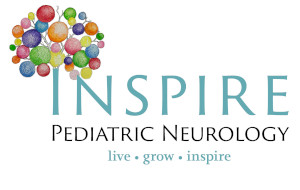Seizures - Epilepsy
What are Seizures / Epilepsy?
Seizures are caused by disturbances in the electrical activity of the brain. When something goes wrong with this activity, such as the nerve cells in the brain sending out sudden, excessive or uncontrolled electrical signals, this may lead to a seizure. Sometimes, seizures are triggered by a disease or injury but for most children there is no detectable cause. Sometimes other conditions, such as fainting or stroke, can look like seizures.
Epilepsy is a neurological condition that affects the nervous system. Epilepsy is a term used when an individual has more than one unprovoked seizures. Unprovoked means that the seizures were not precipitated by a known cause, such as fever or illness.
It is thought about ten percent (10%) of people will have a single seizure at some point in their lifetime. Some of those people will develop epilepsy. Each year in the U.S., around 45,000 children under the age of 15 will develop epilepsy. In most children who have epilepsy (about 70%), the cause for the epilepsy is either unknown or genetic. In around 20% of children diagnosed with epilepsy, the cause is a developmental disorder or birth defect.
Signs and symptoms of seizures / epilepsy
A child may have a wide variety of symptoms depending on their type of seizures. Certain seizures are easy to recognize (jerking, twitching, stiffness), while others have more subtle signs.
Signs and symptoms indicating a child might be having a seizure include:
- Unusual sensations or twitching before the seizure
- Staring, not responding to anyone
- Uncontrollable muscle spasms
- Loss of consciousness (passes out)
- Loss of bowel and bladder function.
Getting help if you are concerned your child has seizures / epilepsy
Most seizures are not life-threatening; however if a seizure lasts longer than 5 minutes or your child has trouble breathing, call 911 right away.
If you or your child’s doctor have concerns for seizures, or you are looking for expert help with managing your child’s seizures, schedule an appointment with our pediatric neurologist, Dr. Sidhu. At Inspire Pediatric Neurology we offer a comprehensive neurological consultation for assessing, diagnosing and managing seizures in children and adolescents.
